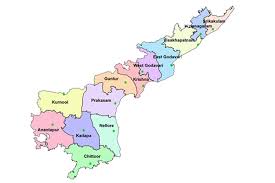
In another major decision, Andhra Pradesh government on Thursday cancelled the concession agreement for development of Machilipatnam port.
The state government issued an order, resuming 412 acres of land which was given on lease. The order issued by the department of industry, infrastructure, investment and commerce, made it clear that the government reserves the liberty to claim compensation for the damages suffered by the government from Machilipatnam Port Private Limited (MPPL).
This is the second major project cancelled by the new government led by Y.S. Jagan Mohan Reddy. It came a week after the government asked Navayuga Engineering Company Limited (NECL) to exit from Polavaram irrigation project.
Interestingly, NECL is the lead promoter in MPPL.
It was in February this year that then Chief Minister N. Chandrababu Naidu laid the foundation stone for the deep sea port to be constructed at an estimated cost of Rs 12,000 crore.
The greenfield, all-weather multi-purpose port was coming up in Machilipatnam town in Krishna district near Amaravati.
Thursday’s development came amid allegations by Naidu and his Telugu Desam Party (TDP) that YSR Congress Party (YSRCP) government is trying to handover Machilipatnam port to Telangana. YSRCP has denied the allegations.
It was in 2008 that the state government had awarded the project to a consortium led by MAYTAS Infra Pvt Ltd. NECL was inducted as the lead promoter of the project in 2009.
According to the government order, concessionaire failed to fulfil its obligations like payment of lease rentals and achieving financial closure over last 11 years.
At the time of laying of foundation stone early this year it was announced that that the port will be spread across 4,800 acres. The first phase with four berths was expected to be completed and operational in 18 months. It was also announced that the port will have 40 million tonnes capacity in the first phase. When completed, the port’s handling capacity was to go up to 150 million tonnes.
Leave a Reply